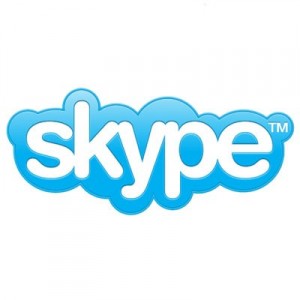It seems that everyone is using the incredibly popular VoIP solution Skype these days. Why use a conventional phone and pay for regular phone calls when you can have voice and video connections, file-transfer and instant messaging services over the Internet for free? The decision to use Skype is a “no brainer” right?
Well, things are not always as they seem! Today I would like to tell you what I think about the Skype VoIP system. There are certainly some benefits to using Skype but there is also a darker side to Skype that many people are unaware of. Today, the dark side of Skype!
First please bear with me as I talk a little bit about Google (don’t worry, I’ll connect all of the dots in a moment).
People are watching hundreds of millions of videos a day on Google’s YouTube and uploading hundreds of thousands of videos daily. In fact, every minute, 20 hours of video is uploaded to YouTube. Have you ever wondered where Google stores all of those videos? Well, Google has thousands of data server farms scattered across the world one of which is thought to be in The Dalles, Oregon. This container based data center in Oregon houses 45,000 servers in 45 huge containers. The 45,000 servers are full of Google data, and believe you me that’s a lot of data!
Now, have you ever wondered where Skype processes all of your voice, video, file and instant messaging data? As of early 2010, over 2 billion copies of the Skype software have been downloaded and over 20 million users are online constantly. Where are all of the Skype call processing server farms located?
Well, are you ready for this? SKYPE HAS NO CALL PROCESSING SERVER FARMS!!
Then how does Skype do all of it’s call processing and traffic routing you ask? If Skype doesn’t do it who does??
Well are you ready for this? YOU DO!!!!!
Yes you! Like the true peer to peer parasite that it is, Skype will use your computers processor and your fast PC Internet connection bandwidth to process calls for, and route traffic to, other users!
Take a look at the Skype PERMISSION TO UTILIZE license agreement that you agree to when you download and install the software:
ARTICLE 4.1: PERMISSION TO UTILIZE YOUR COMPUTER. In order to receive the benefits provided by Skype software, you hereby grant permission for the Skype software to utilize the processor and bandwidth of your computer for the limited purpose of facilitating the communication between Skype software users.
Is this incredible or what? Skype traffic will be sent through your computer as you become a Skype “supernode”. Your computer performance will be affected and your bandwidth usage will increase as your machine is used by other Skype users.
Where are the Skype servers you ask? THEY ARE IN YOUR HOME!! YOUR COMPUTER IS A SKYPE SERVER!!
If you have a fast Internet connection Skype will use your machine as a supernode and convert it into a Skype server to handle voice and video calls to and from other Skype users from all over the world. Just imagine, large flows of inbound and outbound traffic through your machine that have nothing to do with your calls. You use Skype? Skype uses you!
Enough for today. In my next post I’ll talk more about Skype and I’ll show you how to configure Skype in a way that will keep you and your machine somewhat safer.
Professor Randy says: Sure Skype is inexpensive, popular, and very appealing but there is a dark side to Skype! By becoming aware of the many privacy, security, and resource issues that are created by Skype, you will be able to make an informed decision concerning it’s use.




3:20 am on June 5th, 2011 1
Smoochict sent me here and i can’t believe this! WTH! I’m gonna find other services besides skype.
9:53 am on June 11th, 2011 2
Hello BigElf,
Skype is an ingenious piece of software but it does have its drawbacks! By turning off auto start and exiting the program when a call is finished, the parasitic nature of Skype can be curtailed.
10:35 am on July 15th, 2012 3
Are you stupid?
The software is not going to use your computer as a node – it uses your computer to process YOUR current call. Using Skype software won’t make you a part of a botnet of somekind. Stop spreading crap around the Internet.
2:52 pm on July 15th, 2012 4
Hello User,
I beg your pardon?
1) I most certainly do not spread “crap” around the Internet.
2) I am not at all stupid.
3) You are greatly mistaken about Skype. Read on:
This may be old news for some, but even if so, it’s worth reviewing again: when you install Skype, you are agreeing to let Skype use your computer to route other Skype users’ calls. It’s similar to the Seti arrangement. When your computer is otherwise not in use (or perhaps even when it is), Skype is using your computer’s resources to handle Skype traffic which has absolutely nothing to do with you.
It’s all laid out quite plainly in their End User License Agreement (EULA), to which you agreed if you downloaded and installed Skype on your computer. But hey, it’s a bunch of pages down, and let’s face it, who ever really reads those things, and even if you do, it’s all legal and technical mumbo-jumbo, right?
Often, yes. But that doesn’t mean you can ignore it.
So, here’s what you’ve agreed to, if you’re using Skype:
Article 4 Permission to Utilize
4.1 Permission to utilize Your computer. In order to receive the benefits provided by the Skype Software, You hereby grant permission for the Skype Software to utilize the processor and bandwidth of Your computer for the limited purpose of facilitating the communication between Skype Software users.
4.2 Protection of Your computer (resources). You understand that the Skype Software will use its commercially reasonable efforts to protect the privacy and integrity of Your computer resources and Your communication, however, You acknowledge and agree that Skype cannot give any warranties in this respect.
Got that?
“You hereby grant permission for the Skype Software to utilize the processor and bandwidth of Your computer for the limited purpose of facilitating the communication between Skype Software users.”
And, you get no warranties from Skype that they will actually protect your privacy or the “integrity of Your computer resources”.
At least now you know.
8:29 am on November 20th, 2012 5
I think you’re a bit daft. In Skype calls with 2 or more participants, there is something called the ‘call host’ (denoted by a crown next to the name). The host is the person who routes all the data from the other participants of the call to the rest of them.
Your computer does not process Skype data for people that you do not know. It only processes the data for people IN YOUR CURRENT CALL.
As User said, STOP SPREADING CRAP AROUND THE INTERNET.
8:03 pm on November 20th, 2012 6
Mitch,
I beg your pardon? I’m certainly not daft and I absolutely do not spread “crap” around the Internet. You might want to do a little more research:
“Skype’s supernodes are simply other Skype users that have public IP addresses. When they connect to Skype, the network chooses them to be a supernode and then takes advantage of their bandwidth and computing resources to serve other Skype users. This “volunteerism” is allowed under the terms of the Skype user agreement. Using volunteer systems introduces reliability concerns. The owner of such a system may turn it off or disconnect it from the network at any time. Therefore, you may need to connect to more than one supernode to facilitate your communication. There’s also the possibility that your system has been “volunteered” as a supernode, an action that could cause your system to begin routing calls for other Skype users on the Internet”.
“Ars Technica reports that a security researcher has found that Microsoft is using about 10,000 in-house servers running Linux software instead.
The move makes sense from a security standpoint — while Skype has generally been pretty reliable, there’s something a little icky about realizing that your calls are being routed through the computers and internet connections of other users. That could have slowed adoption of the Skype service in corporate settings”.
http://liliputing.com/2012/05/skype-abandons-peer-to-peer-technology.html
Randy Knowles
1:03 pm on February 26th, 2013 7
I can believe this, everytime i log on skype, my computer suddenly starts to use 70% of its resources, making skype crash. I have tried all the methods been given, none works. Lets say my computer uses 30% of its memory, when i log on skype it goes up to like 90%+++ And everything freezes and crashes.
1:19 pm on February 26th, 2013 8
Thanks for the comment OJ,
I’m glad you believe it because it is true indeed! Just turn it off (completely) when not in use. How much memory do you have in your machine?
Best wishes,
Randy Knowles
6:16 am on May 24th, 2013 9
If you read Skype Terms of Use the paragraph about 4.1 doesn’t exist, you’ll have to verify your source to make this ridiculous statement valid.
http://www.skype.com/en/legal/tou/
Considering Microsoft own Skype I’m pretty sure they have enough servers of there own to support the Skype infrastructure.
10:10 pm on May 24th, 2013 10
Thanks for the comment Lee. I can assure you that I do not make ridiculous statements! The Skype peer to peer protocol is very well known and is now vaguely stated in paragraph 5.2. No need for Microsoft to supply servers because Skype uses its own clients to do that!
You may want to check out this link: https://www.blackhat.com/presentations/bh-europe-06/bh-eu-06-biondi/bh-eu-06-biondi-up.pdf
Any client with good bandwidth, no restriction due to firewall or NAT, and adequate processing power can become a supernode. This puts an extra burden on those who connect to the Internet without NAT, as Skype may use their computers and Internet connections as third party for UDP hole punching (to directly connect two clients both behind NAT) or to completely relay other users’ calls. Skype does not choose to supply server power with associated bandwidth required to provide the relay service for every client who needs it, instead it uses the resource of Skype clients.[3] Unfortunately, Skype does not support the use of the IPv6 protocol,[4] which would greatly reduce the complexity associated with the aforementioned IPv4 communication structure.
Supernodes relay communications on behalf of two other clients, both of which are behind firewalls or “one-to-many” Network address translation. Without relaying by the Supernodes, two clients with firewall or NAT difficulties would be unable to make or receive calls from one another. Skype tries to get the two ends to negotiate the connection details directly, but sometimes the sum of problems at both ends can prevent direct conversation being established.
Best wishes,
Randy Knowles
9:07 pm on January 24th, 2014 11
[…] have used Skype for home and work, but either it has slowed my internet connection, as it is a Peer 2 Peer technology which can be parasitic. At work, I presumed the service would be better, since the university is on […]